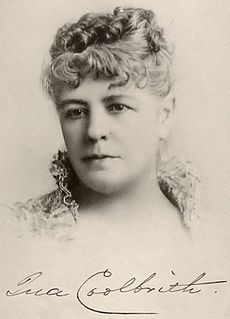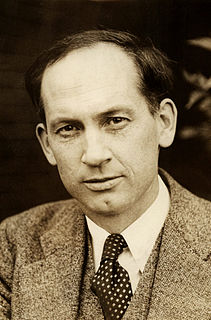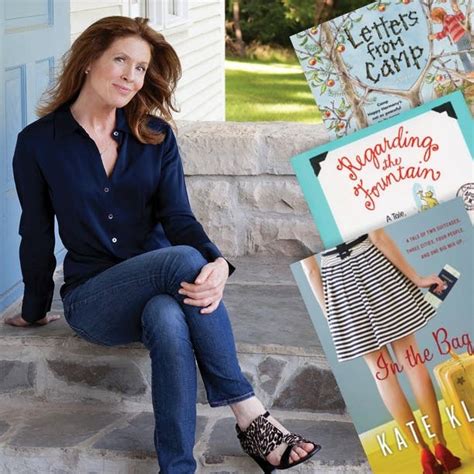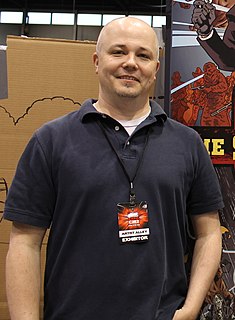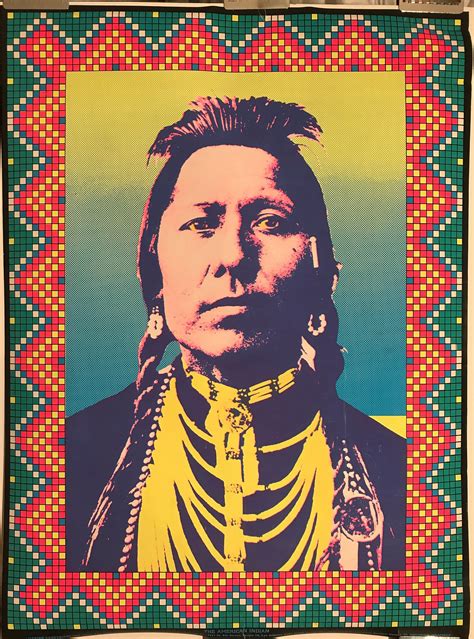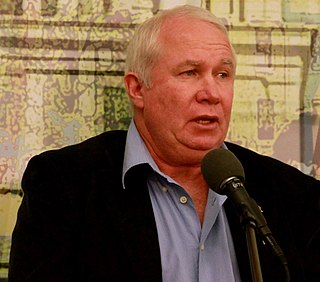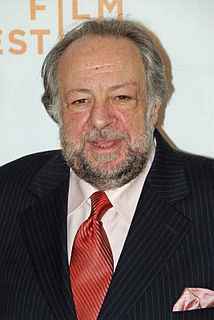Top 1142 Print Quotes & Sayings - Page 16
Explore popular Print quotes.
Last updated on April 21, 2025.
Advertising and content have always been bound together - in print, on television, and on the web. Sure, you can skip the ad - just flip the page, or press 'ffwd' on your DVR. But great advertising, as I've long argued, adds value to the content ecosystem, and has as much a right to be in the conversation as does the publisher and the consumer.
I think a lot of politicians, rightfully so, understand that their political futures are tied to how many times people see their names in print. The press is so accustomed to politicians wanting those things, it's a surprise when somebody's like, 'Whatever, I'm not really worried about those things.
Technology has already opened the door a bit wider for filmmakers, with smaller digital cameras making production less cumbersome. Social media is allowing self-distribution, and girl groups like Spark Summit are leading the way in calling for fewer Photoshop image alterations of girls in print media.
C.S. Lewis admitted, when he was asked to set forth his beliefs, that he never felt less sure of them than when he tried to speak of them. Photographers know this frailty. To them words are a pallid, diffuse way of describing and celebrating what matters. Their gift is to see what will be affecting as a print. Mute.
At last, after almost fifty years in the hopper, the most famous unpublished novel in America is in print. Who Shot the Water Buffalo? is a splendid story of comradeship in a time and place of constant peril, but it's Babbs's irrepressible exuberance and vast, affectionate good humor that make the story go. I love this novel.
We know that if you have $20 million, it's better to buy a van Gough print than it is buy an executive jet, from the point of view of the environment. But when you start getting down, it's like the recycling question: What are things we can really afford to do, and how much pleasure do we get out of them? We haven't even started to have that discussion, and it's getting awfully late.
I think a lot of politicians, rightfully so, understand that their political futures are tied to how many times people see their names in print. The press is so accustomed to politicians wanting those things, it's a surprise when somebody's like, 'Whatever, I'm not really worried about those things.'
The 'gatekeepers' became a term of revile. But when you think about the flow of information, I personally value immensely the calibration a news organ, whether it's on the web or in print, brings to the floodwaters of information. I haven't the time to read all the dispatches of the Associated Press, for example. It's fantastic what they put out, it's extremely good, from all over the world. I like when someone acts as a filter.
It is quite widely known that I like shoes. This is not something that defines me as either a woman or a politician, but it has come to define me in the eyes of the newspapers. I wore a pair of leopard-print kitten heels to a Conservative Party Conference a few years ago and the papers have continued to focus on my feet ever since.
At the time I was first writing the stories/essays that appear in Oedipus Wrecked, I was still under the impression that people would be delighted to see their name in print. I overlooked the fact that I was writing about intimate matters, and people are a bit touchy about airing their private lives in such a public fashion. Especially when it's done without their consent.
Central banks have gotten out of the central banking business and into the central planning business, meaning that they are devoted to raising up-if they can-economic growth and employment through the dubious means of suppressing interest rates and printing money. The nice thing about gold is that you can't print it.
The full impact of printing did not become possible until the adoption of the Bill of Rights in the United States with its guarantee of freedom of the press. A guarantee of freedom of the press in print was intended to further sanctify the printed word and to provide a rigid bulwark for the shelter of vested interests.
'Inequality' has become the political theme/slogan of our time in both Europe and the U.S., yet political leaders do not even bother to consider that their own policies, which put the entire burden on central bankers to print money and drive up stock, bond and other asset prices, are actually exacerbating income and wealth disparity.
Normally I do all my own post work. It's not that I do it better than anyone else, I just do it my way. I make decisions. People who print at labs are probably far better printers, but they won't make my decisions mid-process. I don't want to be out of the loop. I want to be a photographer and do all of it.
Things have a behavior online, whereas in print, there is a single canonical expression for them, but online everything responds to different criteria or has inherent states to it based on that criteria. So, you have to design that in a different way. It's a completely different dynamic even though it may look similar.
I got drafted into the army and by pure chance was pushed into a silk-screen shop at this camp where I was, because they could not get training posters fast enough out of a central source in Washington, D.C. So they set up their own shop to print training posters: how to dismantle a machine gun, etc.
I think someone's biggest competition is themselves. I stand out as a 'fashion' designer and not to be confused with, (people who call themselves 'clothing' designers, who just print designs or logos on pre-existing t-shirts), because what I have created is custom fashions that are a personal extension of myself and my personality. It's pretty unique since there is only one of me.
My pictures are never pre-visualized or planned. I feel strongly that pictures must come from contact with things at the time and place of taking. At such times, I rely on intuitive, perceptual responses to guide me, using reason only after the final print is made to accept or reject the results of my work.
The power of the print reviewer is one of those urban myths. There have always been shows that slipped under the critical radar to become popular successes: 'Tobacco Road', 'Abie's Irish Rose' and our old friend 'Spider-Man', which got the worst reviews in theatre history and is still apparently going strong.
Some representatives of monopolistic capitalism, sensing this evil in their system, have tried to silence criticism by pointing to the diffused ownership in the great corporations. They advertise, "No one owns more than 4 percent of the stock of this great company." Or they print lists of stockholders, showing that these include farmers, schoolteachers, baseball players, taxi drivers, and even babies.
Woe to that nation whose literature is disturbed by the intervention of power. Because that is not just a violation against "freedom of print," it is the closing down of the heart of the nation, a slashing to pieces of its memory. The nation ceases to be mindful of itself, it is deprived of its spiritual unity, and despite a supposedly common language, compatriots suddenly cease to understand one another.
The great thing about being a print journalist is that you are permitted to duck. Cameramen get killed while the writers are flat on the floor. A war correspondent for the BBC dedicated his memoir to 50 fallen colleagues, and I guarantee you they were all taking pictures. I am only alive because I am such a chicken.
Simplification seems to be the removal of objects for the goal of making a graphic as clean and uncluttered as possible. Whereas, with optimization, it feels like there's more intelligence in that. It maintains the usability, but tries to distill something down to its essence. But with some data-sets you have to be careful because, as with linear, print journalism, it's easy to shave off facts that don't quite fit the flow.
Year after year, animal print, hides, fur, tusks et al find their way into the home as design elements in various spaces; not surprising, considering that the use of 'animalia' as decor in the home dates back centuries, when, to be fair, they didn't have the choice of faux and tended to eat the animals as well as enjoy their pelts.
Each of us chooses the tone for telling his or her own story. I would like to choose the durable clarity of a platinum print, but nothing in my destiny possesses the luminosity. I live among diffuse shadings, veiled mysteries, uncertainties; the tone of telling my life is closer to that of a portrait in sepia.
I think of this a lot in the terms of books. Of course there's a big to-do culturally about e-books versus print books, sales models. The paradigm has changed but my perspective on it is that there's not going to be another paradigm to alight on because everything will continue to evolve so quickly that our brains won't be able to keep up with it.
In the late 1990s, Mugabe's misguided policies sent our economy and agricultural productivity, our country's lifeblood, plummeting into the abyss. To make up for the financial shortfall, his regime attempted to print its way out of the mess, immediately resulting in inconceivable hyperinflation, topping out at 231 million percent.
The love of literature, of language, of the mystery of the mind and heart showing themselves in the minute, strange, and unexpected combinations of letters and words, in the blackest and coldest print—the love which he had hidden as if it were illicit and dangerous, he began to display, tentatively at first, and then boldly, and then proudly.
Kindle Singles is publishing on skates. It prints like lightning; our book meets readers in hours. I've spent so many years waiting for publishers to consider whether they wanted to print a book of mine, making contracts, taking months to fit it into the Fall list or the Spring list, fitting it into an advertising plan.
Sitting with a deck of cards in your hand all day is an obsession. Visiting print shops and bookstores and libraries is an obsession. And writing about this is an obsession. I think, in general, most collectors are obsessed. I think the only form of a rationalized greed is when you're collecting something you are supposedly serious about.






















